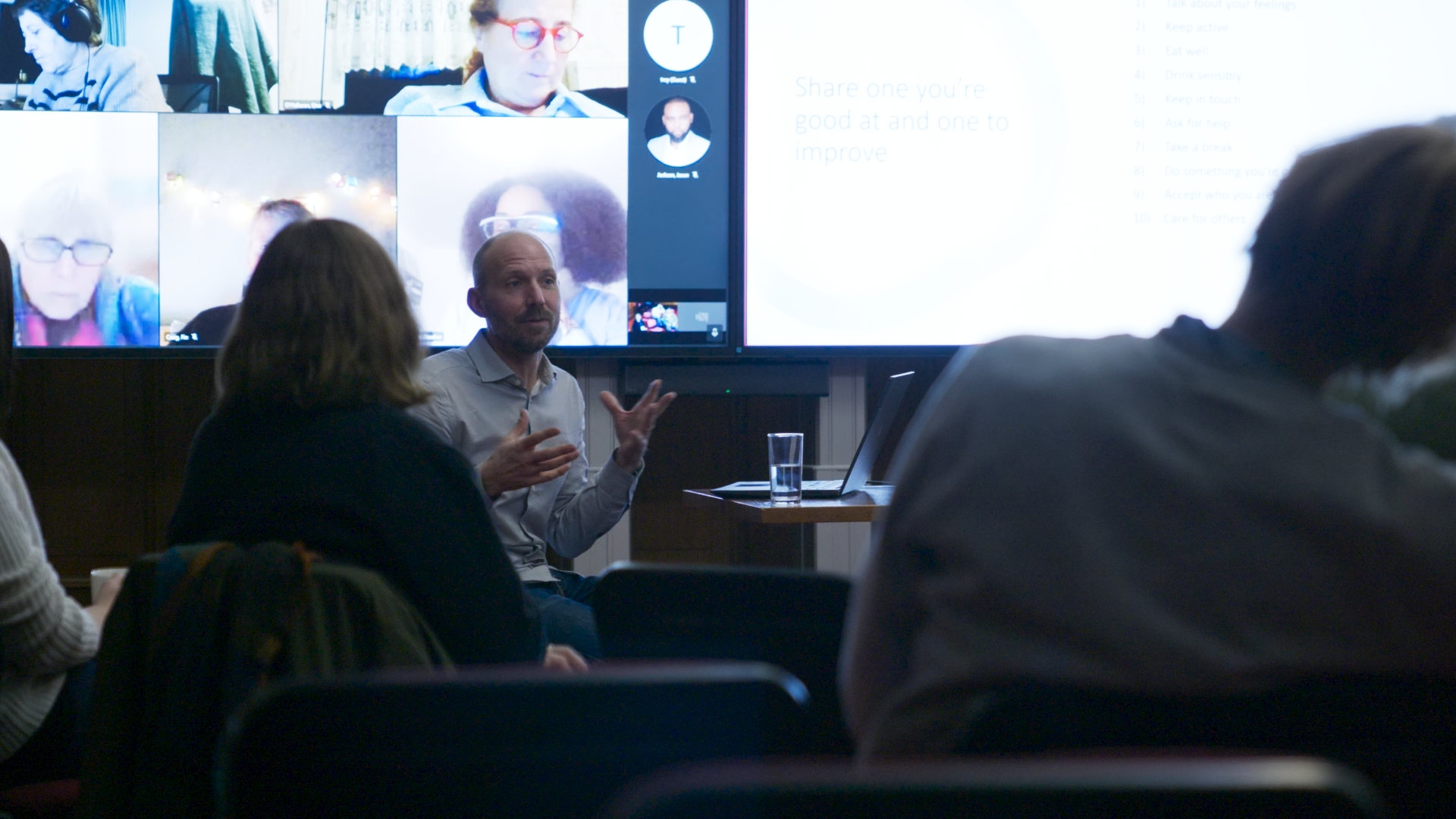
Action and awareness on resident mental health increased thanks to councillor training programme, says new evaluation report

A series of training sessions designed to equip local councillors with knowledge and tools to better understand and support mental health services in their communities has led to positive outcomes, outlines new NHIR funded report.
The Councillor Mental Health Training (CMHT) programme

In 2021, the Councillor Mental Health Training (CMHT) programme was commissioned by Thrive LDN, London’s public mental health partnership, and developed and delivered by Ed Davie, of Better Mental Health Training, a former London borough councillor who has a long background working for mental health charities.
The training recognised that councillors play a pivotal role in shaping policies and services that impact mental health and was designed as a means of supporting local leaders and the communities they represent.
Delivered in most cases as a two-hour online course, the training was designed to provide essential education on personal mental health management, the broader social determinants of mental wellbeing, and actionable strategies for improving community mental health outcomes.
In London, between 2021-2023, a total of 532 councillors, 28% of all London councillors, took part in the two-hour sessions which defined mental health and illness and gave evidence-based advice on looking after individual and community mental health. Further training was carried out in 2024, including with the London Assembly.
Evaluating the training
An National Institute for Health and Care Research (NIHR) funded evaluation of the training has been carried out by the Public Health Intervention Responsive Studies Team (PHIRST) Light, a research partnership between University of Nottingham, Loughborough University and University of Lincoln.
The evaluation investigated the impact and effectiveness of the CMHT programme delivered across both Greater London and Greater Manchester, with CMHT also being commissioned by NHS Greater Manchester Integrated Care Partnership.
The evaluation was conducted in two phases and included a Public Advisory Group (PAG) containing members of the public and local authority service users:
Phase 1 (Greater London): A retrospective analysis of training outcomes across all 32 London boroughs.
Phase 2 (Greater Manchester): A pilot evaluation in 10 boroughs, involving pre, during, and post-training assessments through surveys, interviews, and direct observations.
The evaluation explored the following key questions:
Is the CMHT programme a practical and well-received intervention for councillors?
Does the training enhance councillors’ understanding of personal and community mental health?
Does the training lead to tangible policy changes or improved mental health support in local communities?
Training outcomes
Overall, findings showed trainees across both phases enjoyed the training, over 90% rated it ‘excellent’ or ‘good’, and found it relevant, informative, interesting, useful and accessible.
More than two thirds (68%) subsequently reported adopting mentally healthier behaviour and almost half (48%) said they had gone on to take action towards influencing policy, services or other local authority powers and influence to improve resident mental health.
Importantly, and more broadly, participants highlighted how the training was supporting them in their community-focused roles. Councillors also perceived the need for the training due to the demands and stress of the role, the impacts on personal mental health, challenging interactions with residents, the isolation, stigma around mental health issues in local politics, and the lack of support that councillors receive.
“… the person who was delivering the training was very good, very captivating, I don’t think anybody was zoning out, just because the way he was delivering it was very, you could tell he was a former councillor and knows how to engage with people, so it was good in that respect that people were following the content.” – Training participant
The evaluation also outlined and suggested areas for further improvements within the CMHT programme. This feedback is being reviewed by Ed Davie as it continues to be delivered elsewhere across England.
The full evaluation report can be accessed from the NHIR website.
Video recorded at a CMHT training session being held for elected members of Islington Council in 2023. Featuring former Islington councillor and Leader, Kaya Comer Schwartz who outlines how the training has benefited councillors.
Mental health in all policies
Thrive LDN is continuing to collaborate and work with London’s local political leaders who have undergone the training, as well as council officers and public health teams.
The Mentally Healthier Councillors Network, facilitated by the Centre for Mental Health, is a vibrant learning community for elected members, council staff (including in public health, social care and more) and others in and around local government.
The London group of the Network is supported by Thrive LDN and continues to provide crucial insights into the role of councillors, best practices for communicating mental health concepts, and effective strategies for participant recruitment and engagement.
The London group next meets on Tuesday, 25 March and members will be invited to support the work of The Population Mental Health Consortium, part of the UKRI-funded Population Health Improvement network, to inform and discuss practice informed evidence pathways.
By equipping councillors with the necessary tools and understanding, Thrive LDN hopes to drive meaningful and sustained improvements in public mental health outcomes across London and beyond.
For more information on Thrive LDN’s wider work, visit the Impact section of the website.